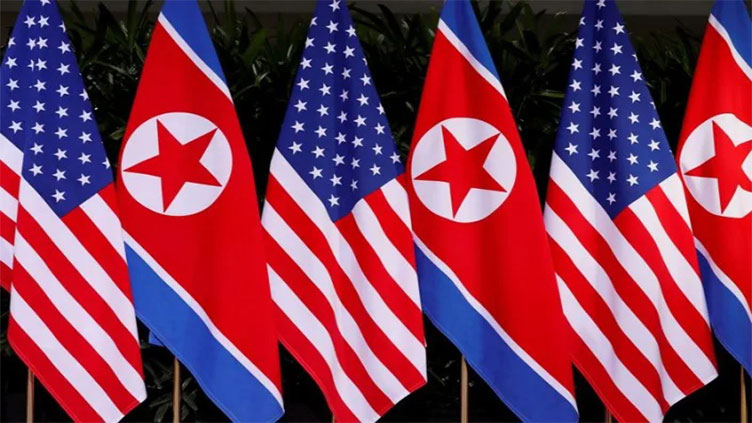North Korea threatens nuclear retaliation over US displays of military force

World
The comments raise the stakes as each side steps up displays of military force.
SEOUL (Reuters) - North Korea said on Thursday deployment of U.S. aircraft carriers, bombers or missile submarines in South Korea could meet criteria for its use of nuclear weapons, state media KCNA reported, citing the country's defence minister, Kang Sun Nam.
The comments raise the stakes as each side steps up displays of military force in a standoff over the isolated country's nuclear weapons and ballistic missile programmes.
The defence minister's statement also accused the United States and South Korea of escalating tensions in the region while criticizing the first meeting by their Nuclear Consultative Group (NCG).
"The ever-increasing visibility of the deployment of the strategic nuclear submarine and other strategic assets may fall under the conditions of the use of nuclear weapons specified in the DPRK law," the statement said.
DPRK is short for the North's official name, the Democratic People's Republic of Korea.
Kang's remark was aimed at the nuclear-armed Ohio-class U.S. ballistic missile submarine that arrived at a port in the southern city of Busan earlier this week.
"The phase of a military clash on the Korean peninsula has surfaced as a dangerous reality," the KCNA report said.
South Korea's Ministry of National Defense said on Friday the NCG meeting and the deployment of the USS Kentucky were "just defensive countermeasures" against the North's nuclear and missile threats.
"North Korea will get no concessions from the South Korea-U.S. alliance for its nuclear development and threats which will only lead to worsening isolation and hardships," the South Korean ministry said in a statement.
The KCNA report came after a U.S. soldier crossed the border into North Korea on Tuesday at a time of heightened tension between the two Koreas and the United States.
North Korea has yet to comment on the incident involving the U.S. soldier.
Last year, the reclusive state codified a new, expansive nuclear law declaring its status as a nuclear-armed state "irreversible".
That nuclear law outlined a "capacious" set of circumstances under which North Korea might resort to nuclear use, and they're indicating that they see this submarine visit as consistent with those conditions, said Ankit Panda of the U.S.-based Carnegie Endowment for International Peace.
"More broadly, though, I think they're seeking to dissuade Washington from regularizing additional shows of reassurance of this nature for the South Koreans," Panda said.

